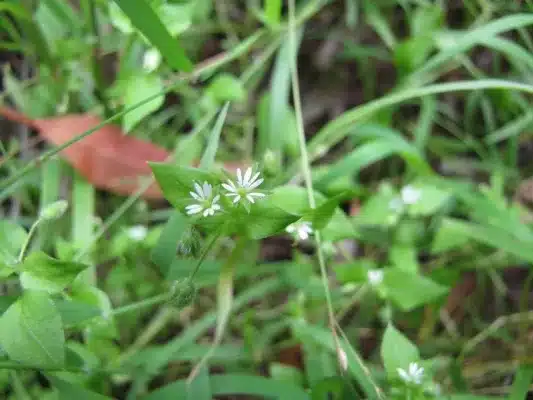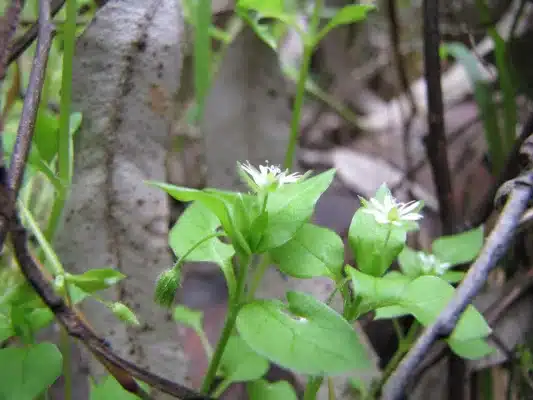Chickweed - Discover the Versatile Charm of Nutritious Herb Taking Root Across Continents
Tamil name is Paravaiyunni (bird eater as it is eaten by the birds). In Hindi it is known as Buch-Bucha.

Table of Contents
Chickweed, scientifically known as Stellaria media, originates from Europe and western Asia, specifically Eurasia. While its precise native range remains uncertain, evidence points to its origins in this region. Despite being classified as a weed in numerous locations, it has proliferated globally and can be encountered on nearly every continent. Its introduction to North America has been extensive, with it now being established in all 50 states of the United States and across Canadian provinces. This cool-season, annual herb belonging to the carnation family is not only widespread but also considered edible, adding to its versatility and adaptability.

Nutrients in abundance
Vitamins: Chickweed is brimming with essential vitamins, including A, C, D, and various B complex vitamins.
Minerals: Rich reservoirs of calcium, potassium, phosphorus, zinc, manganese, sodium, copper, and iron fortify this petite plant.
Additional Health Boosters: It harbors an array of plant compounds, such as phytosterols, tocopherols (vitamin E), triterpene saponins, flavonoids, and silica, contributing to its myriad health benefits.
Fascinating Nutrient Comparisons:
Vitamin C: Rumored to contain up to 6 times more vitamin C than spinach.
Calcium: Potentially packing 12 times the calcium content of spinach.
Iron: Reportedly rivaling spinach in iron content.
In essence, chickweed emerges as a nutritious powerhouse, offering a wealth of health-enhancing properties, making it a valuable inclusion in any diet.

Health Benefits
Chickweed (Stellaria media) boasts a rich historical background in traditional medicine, yet contemporary scientific investigations are predominantly in their nascent stages. Here’s an overview of potential health advantages gleaned from current insights:
Wound Healing and Skin Soothing: Chickweed exhibits antibacterial properties and aids in the healing of wounds and infections. Traditional Chinese medicine has long utilized it to address skin ailments like dermatitis
Anti-inflammatory Potential: Chickweed showcases anti-inflammatory attributes, offering potential relief for conditions such as arthritis, psoriasis, and eczema by mitigating inflammation throughout the body.
Digestive Support: Historically, chickweed has been employed to alleviate constipation and various digestive disturbances. Additionally, it may provide relief for coughs and sore throats.
Weight Management: Preliminary studies suggest that chickweed may assist in weight management endeavors by potentially curbing appetite and reducing fat absorption. Nevertheless, further research is imperative to substantiate these claims.
